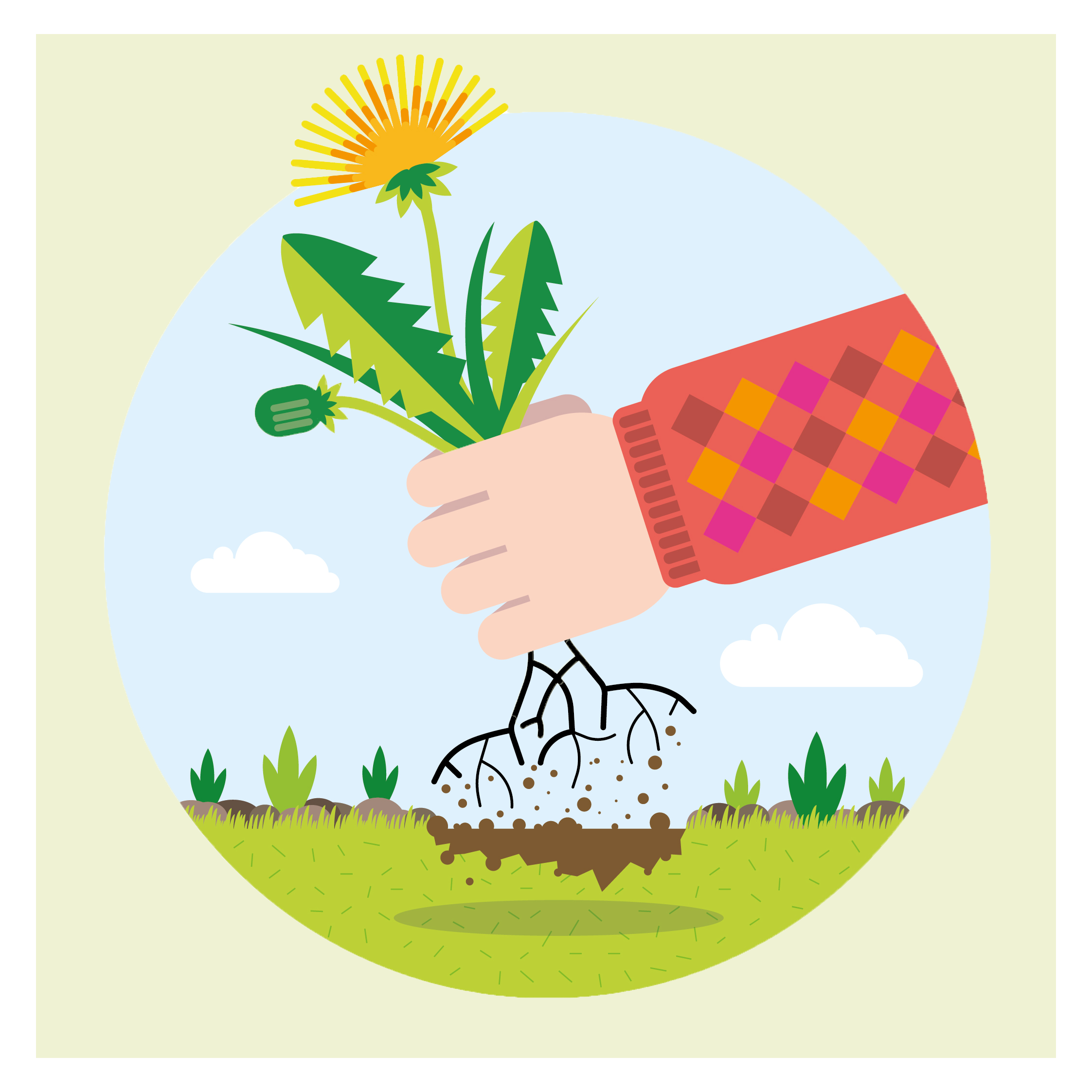A guide to getting your garden summer ready
After a long winter of heavy rain, frost and maybe a sprinkling of snow, by spring our outdoor spaces – gardens or patios – often need a bit of TLC. As warmer weather arrives, so do more weeds, thriving off a rise in temperatures. As we’re spending more time at home than ever before, here are some simple steps you can take to tidy up your garden or courtyard so it’s ready for a long, (hopefully) hot summer of BBQs and al fresco enjoyment. Follow the easy steps in this guide to give your garden a spruce using alternative approaches to pesticides, while reaping the many healthy benefits of gardening at the same time.
1. Preparing the lawn
After a long winter of heavy rain, frost and maybe a sprinkling of snow, by spring our outdoor spaces – gardens or patios – often need a bit of TLC. As warmer weather arrives, so do more weeds, thriving off a rise in temperatures. As we’re spending more time at home than ever before, here are some simple steps you can take to tidy up your garden or courtyard so it’s ready for a long, (hopefully) hot summer of BBQs and al fresco enjoyment. Follow the easy steps in this guide to give your garden a spruce using alternative approaches to pesticides, while reaping the many
2. Removing weeds on the lawn
Following the extremes of winter weather, you might find by spring that your garden has a layer of debris on top – anything from dead leaves, twigs and branches can linger on the grass. Rake the grass to remove any of this debris before mowing the grass to give it a freshen up. You could even get your children involved as a challenge to keep them busy and get some fresh air. Remember, you don’t need to throw the debris away with your garden waste collection if you’re planning to make mulch compost at some point during the spring or summer. This will make perfect mulch, which is great for lining on flower beds to deter weeds before planting.
3. Removing weeds on a patio
As the weather warms up, you’ll notice more and more weeds popping up between the paving slaps on your patio. Although they might look a bit unsightly and feel like a chore to get rid of, much like with the lawn, the key is keeping on top of them. It doesn’t take much time to pull out a weed you’ve just spotted and targeting them early is the most effective way, giving their root less time to grow. You might even find the methodical process is like a type of mindfulness. Effective ways of pulling the weed out include using secateurs to cut it or buying a specific patio weed brush with hard V-shaped bristles which gather weeds up from small cracks between slabs. These are available for under £10. Pouring boiling water where the weed was is also considered an effective way of killing off any remaining root underneath the paving slab.
4. Give the space a makeover
If you’re planning to spend lots of time sitting in the garden over the summer (if weather permits), adding life to the space in the form of flower beds or pots will create an idyllic environment with pops of colour. If you have a flower bed or opt to invest in one, use the mulch you created from the lawn debris to line the bed before planting. This is a good method for preventing weeds too. If you’re not able to make your own mulch, you can buy it from a garden centre. There’s equally many benefits from leaving some areas of the garden unkept to create mini eco-systems. Letting nature reclaim the garden will encourage natural predators which can help control pests.
Top Tips:
1. Pulling out weeds as soon as you spot them, even during the winter, will help you keep on top of them and avoid leaving you with a bigger task come spring.
2. Mulch can be made from grass clippings, leaves, hay, straw, bark or woodchips, shredded newspaper, cardboard and animal manure.
3. Use natural methods for tackling weeds such as pouring boiling water on the root.





